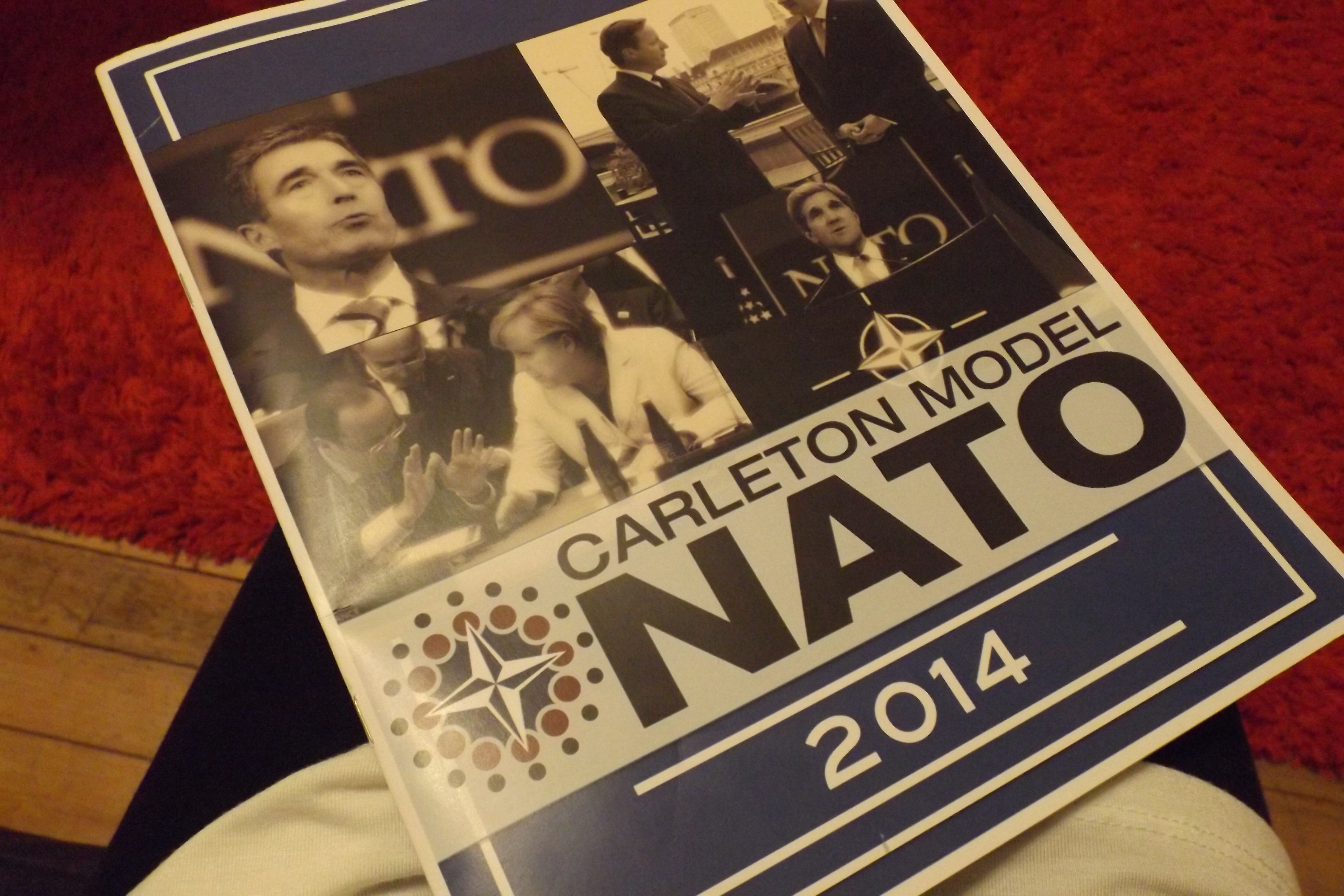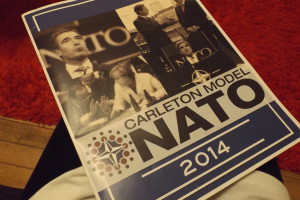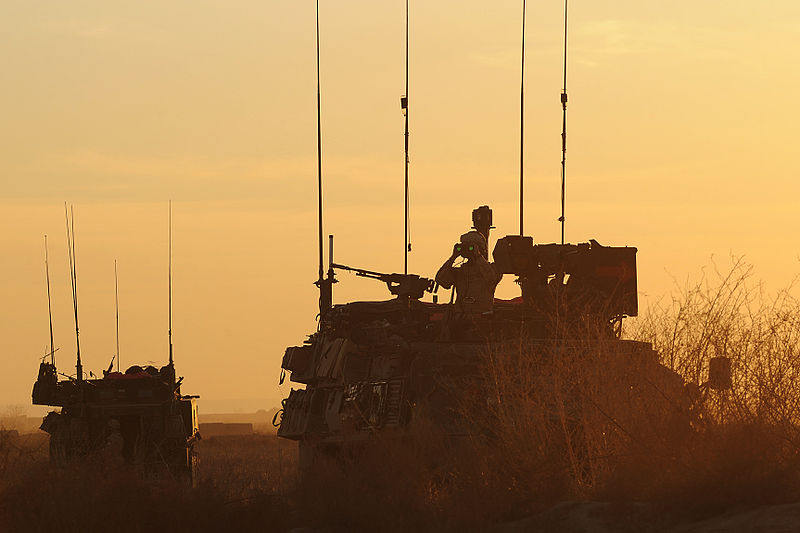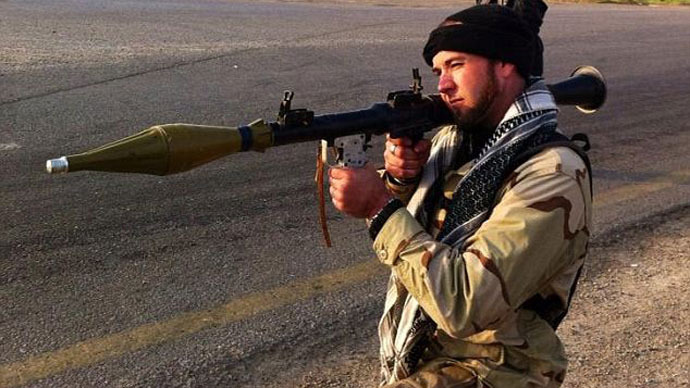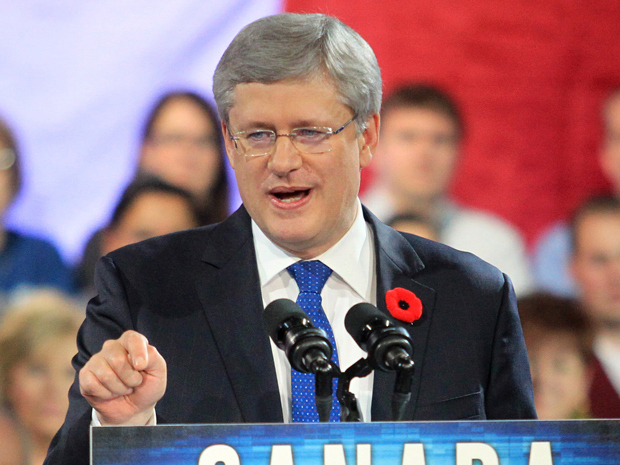The annual Carleton University Model NATO (MNATO) event opened this year to a room full of eager international relations students from all over Ontario and Quebec, working professionals, observers and special guests. The keynote address was delivered by Brigadier-General Derek Joyce, the former Commander of Canada’s Task Force Libeccio in Libya during the Arab Spring. Drawing from his own operational experience, Joyce discussed the advantages and disadvantages of carrying out NATO operations in contested airspace as well as potential lessons for the Canadian military with respect to NATO.
His discussion took the audience through the Joint Task Force Malta (Canada’s first step in Libya, which involved non-combatant removal operations of Canadian citizens and foreign nationals), the UNSCR 1970 (which established an arms embargo on Libya and engaged the international community in the conflict), the UNSCR 1973 (which strengthened the arms embargo, established a no-fly zone and solidified the protection of civilians’ as Canada’s number one priority throughout the mission), Operation Odyssey Dawn (a NATO-led mission to protect civilians to which Canada was a partner nation) and Operation Unified Protector (a Canadian-led series of air- and naval-strikes).
Operation Unified Protector resonated especially with the student delegates due to the fact that four non-NATO partner nations participated in the mission (and to the fact that during the mission, the HMCS Charlottetown, a Canadian naval ship, was fired on by Libyan soldiers). Joyce invited students to consider the motivations of non-NATO partner nations throughout their simulations, and to discuss what happens when these nations enter into NATO-led missions and negotiations.
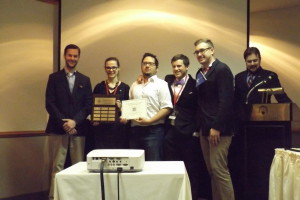
Joyce was open and frank with regards to the many challenges he faced as Commander of Task Force Libeccio. First, he highlighted the fact that, throughout the entire mission, communications with local forces were scarce as no boots ever touched the ground. Second, he discussed the disadvantages surrounding the differing visions of the Libyan end state within NATO (for example, following Gaddafi’s murder, Canadian forces determined that the mission was over, whereas other nations deemed it necessary to stay and stabilize the country). Third, Joyce discussed the added pressure faced by the Canadian forces in Libya due to the presence of social media – which saw photos of every bombing and all collateral damage surface online. Joyce’s remarks were then followed by a short Q&A session in which students posed thoughtful and well-informed questions.
The conference was then officially opened by Vice-Admiral Bob Davidson, Canada’s Military Representative to NATO. In his remarks, Davidson echoed Joyce’s sentiments with respect to the advantages and challenges of alliance politics, but ultimately argued that NATO is one of the “greatest alliances in history”. With that, the conference had officially begun.
The following day, students had the honour of visiting a number of embassies, from the United States to Norway to Georgia. For the rest of the day and the next, students carried out simulations of various NATO committees, including the North Atlantic Council, the Military Committee, the Committee on Proliferation, the Civilian Intelligence Committee and the Euro-Atlantic Partnership Council. The Euro-Atlantic Partnership Council debated the energy security crisis, while the Committee on Proliferation debated the use of chemical weapons in Morocco. The Civilian Intelligence Committee even dealt with a security breach – in which one of its own members confessed to being a mole.
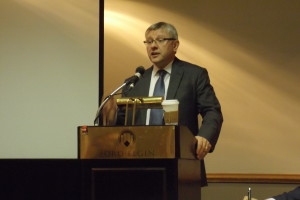
On the final day of the conference, closing remarks were delivered by Ron Hoffmann, the Director General of Strategic Policy at Foreign Affairs, Trade and Development Canada and former ambassador to Afghanistan. Hoffmann, who has spearheaded a number of Canadian engagement initiatives with Asian countries, discussed the challenges in keeping up with new international alliances – especially as Asia (namely, China) emerges as a leader in economic activity that is changing the faces of diplomacy, urbanization, industry, multilateralism and development. For these reasons, Hoffmann argued that Canada must foster and strengthen its diplomatic and economic relationships with Asia, though a number of polls have suggested that Canada has become less pro-Asia than ever.
Following Hoffmann’s remarks, awards were presented to outstanding delegates from each committee. The chairs of all committees noted the high level of professionalism, leadership, cooperation and understanding of foreign policy that was demonstrated by all delegates. The final award, the Dr. Lee Windsor Award (or “Best Delegation Award”) was presented to the delegation from the University of Windsor, representing the Federal Republic of Germany. All in all, the conference was an engaging, memorable and highly enjoyable weekend for Canada’s up-and-coming internationalists.

